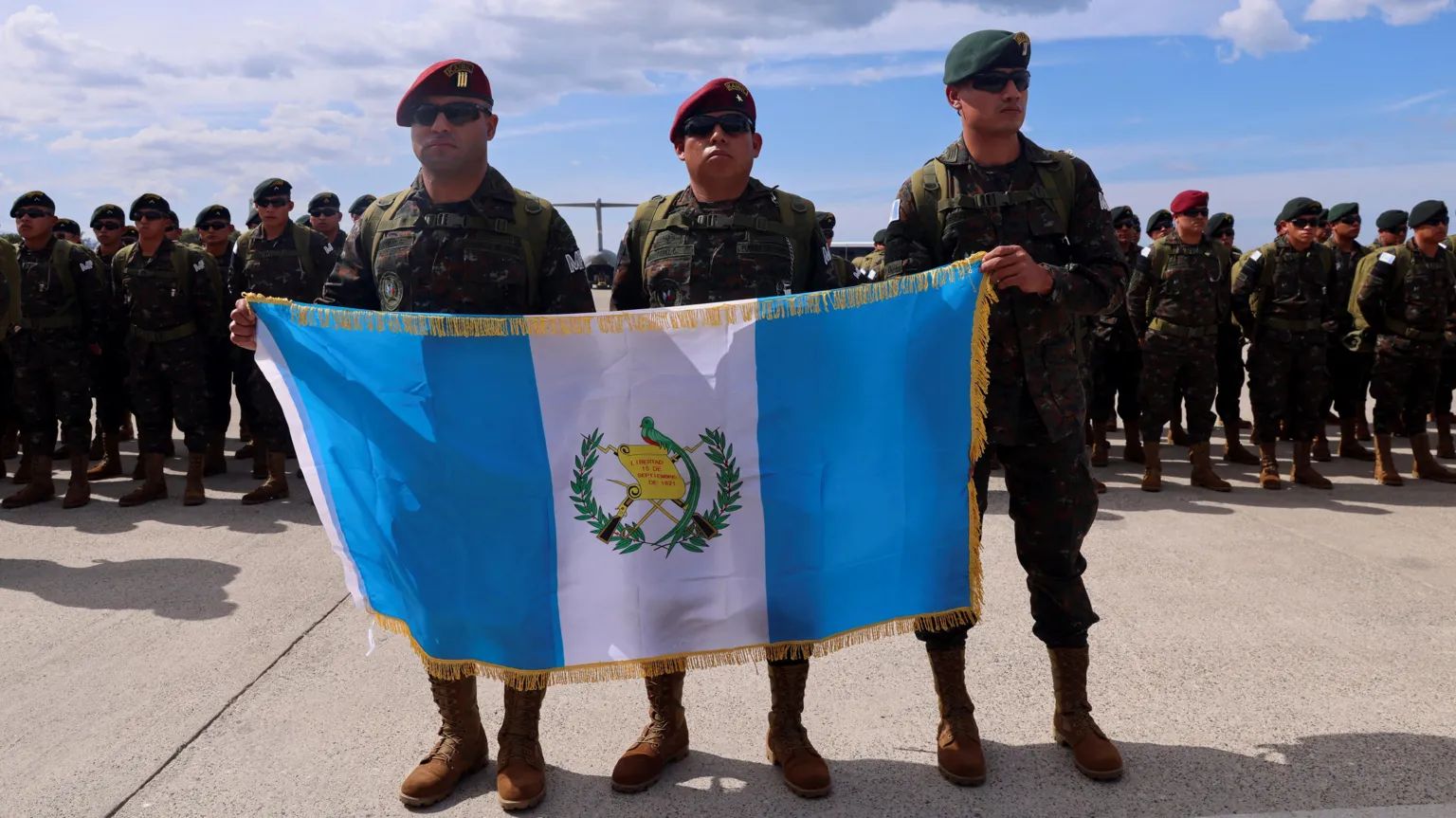

A contingent of security forces from Guatemala and El Salvador arrived in Haiti's capital on Friday and Saturday to reinforce a long-delayed United Nations-backed mission tasked with restoring security amid a bloody conflict with armed gangs.
The first group of 75 soldiers arrived on Friday, and another 75 arrived on Saturday.
They were all drafted by the military police, according to Guatemala's government. The others were eight Salvadorans.
A state of emergency has been in place across the Caribbean nation for months as the government battles violent gangs that have taken control of much of the capital Port-au-Prince.
The president of Haiti's transitional presidential council, Leslie Voltaire, alongside Prime Minister Alix Didier Fils-Aime and US Ambassador Dennis Hankins, welcomed the troops at Port-au-Prince's airport, Haiti's interim government said in a post on social media.
"They have come to reinforce the Multinational Force in the fight against gangsters and guns in the country," the government said.
Guatemalan President Bernardo Arevalo had in September pledged to send 150 military police, three months after initially pledging in a letter to the UN an unnumbered contingent alongside personal equipment.
El Salvador had in August promised 78 soldiers for medical evacuation operations as well as three helicopters - much needed by Haitian security forces contending with mountainous terrain and highways scattered with gang-controlled checkpoints.
Salvadoran President Nayib Bukele, who has garnered broad popularity over a harsh crackdown on organised crime in his home country including the use of mass trials and construction of a "mega-jail", has stated that he would be able to "fix" Haiti and that its gangs must be "obliterated."
The mission is being led by Kenya, which deployed nearly 400 police mid last year, far short of the 1,000 it had promised.
The police were later joined by 24 Jamaican personnel and two senior officers from Belize.
The forces are in Haiti to boost a United Nations-backed security mission led by Kenya that has so far failed to prevent violence from escalating.
This was the first tranche of a UN-approved international force that will be made up of 2,500 officers from various countries.
In March 2024, armed gangs stormed Haiti's two biggest prisons, freeing around 3,700 inmates.
The Ouest Department - a region including Port-au-Prince - was originally put under a state of emergency on 3 March, after escalating violence gripped the capital.
Chronic instability, dictatorships and natural disasters in recent decades have left Haiti the poorest nation in the Americas. In 2021, President Jovenel Moïse was assassinated by unidentified gunmen in Port-au-Prince.
Since then the country has been wracked by economic chaos, little functioning political control and increasingly violent gang warfare.
However, the mission has failed to prevent gangs from taking new territories and committing several massacres as violence dramatically escalated in the last months of 2024, causing thousands more people to flee their homes.
Haiti's national police have meanwhile shed thousands of officers in recent years. Some 10 countries have together pledged over 3,100 troops for Haiti, but few have so far deployed to participate in the Kenyan-led Multinational Security Support (MSS).
Kenya will send 600 more police officers to Haiti to bolster an international anti-gang mission.
The plan has been derailed by the closure of the main airport there over the gang violence.













